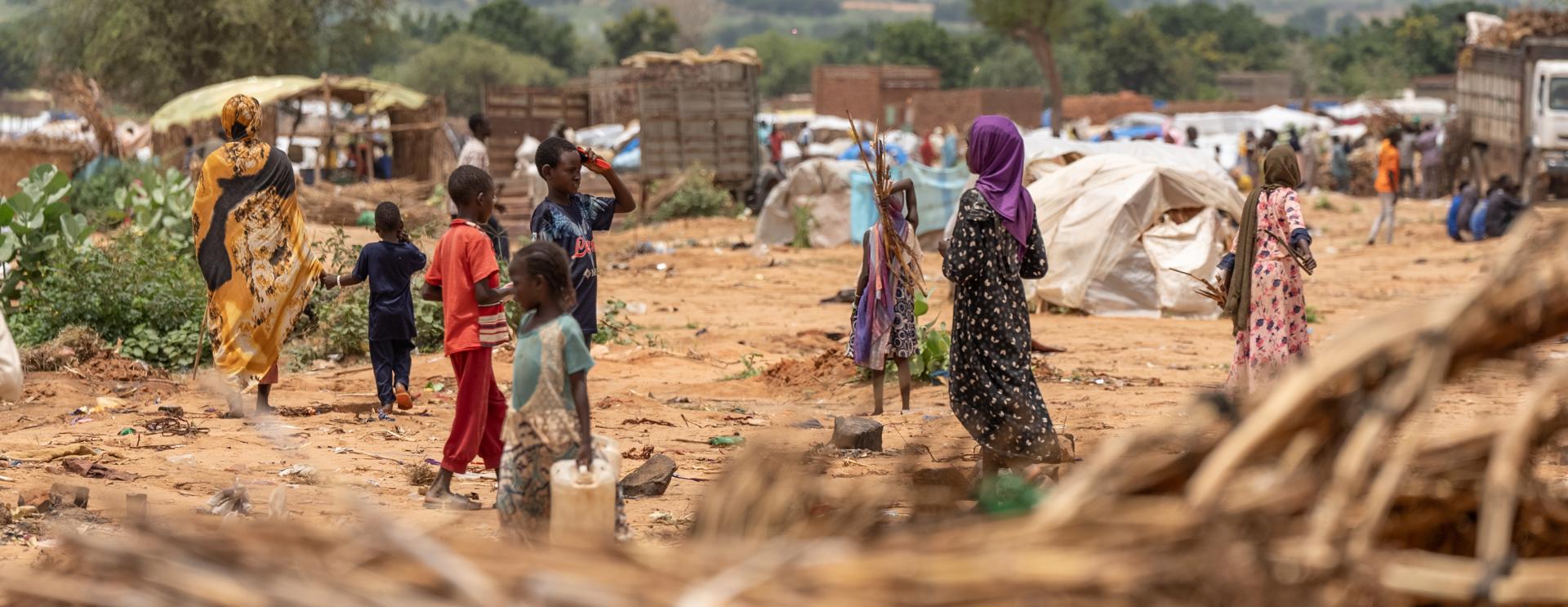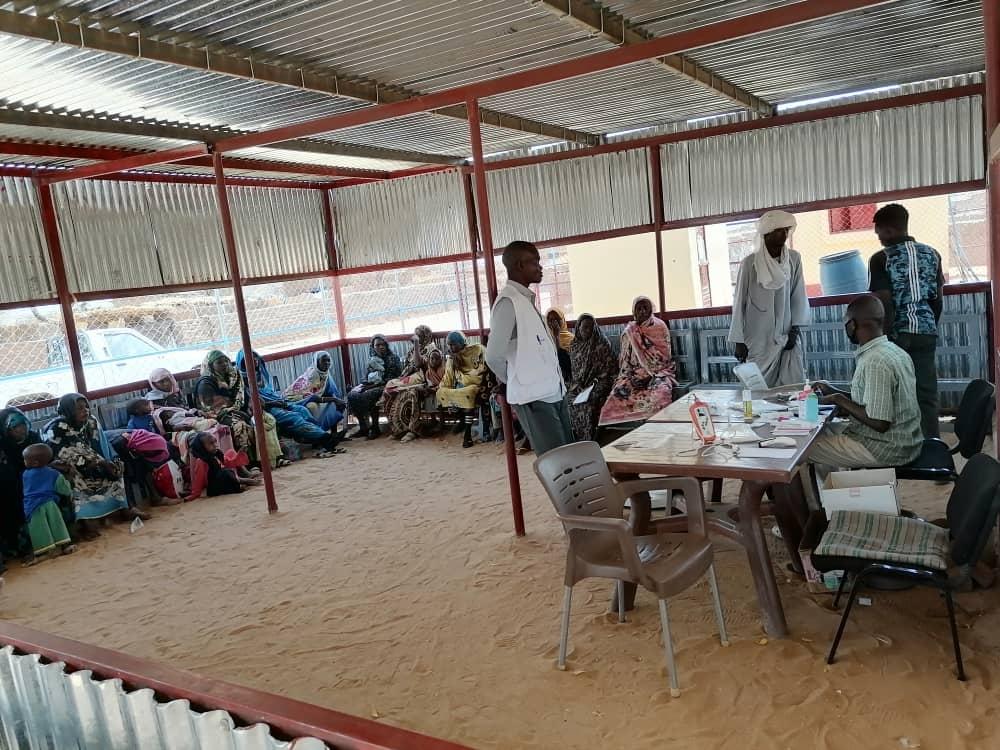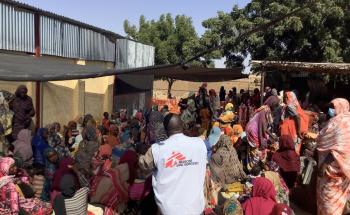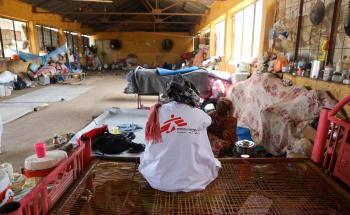The conflict in Sudan has led to the displacement of over four million people. The majority of this population, approximately 3.3 million people, have been displaced within Sudan itself. More than 380,000 people have crossed into eastern Chad, mostly seeking refuge in camps and settlements in and around the border town of Adre. On-site MSF teams are currently witnessing the distressing living conditions faced by these refugees, with a severe shortage of food, water, sanitation, shelter, and healthcare.
MSF appeals to the UN system, international donors, and humanitarian organisations to swiftly address all essential needs of the refugees in Adre and across Ouaddai province.
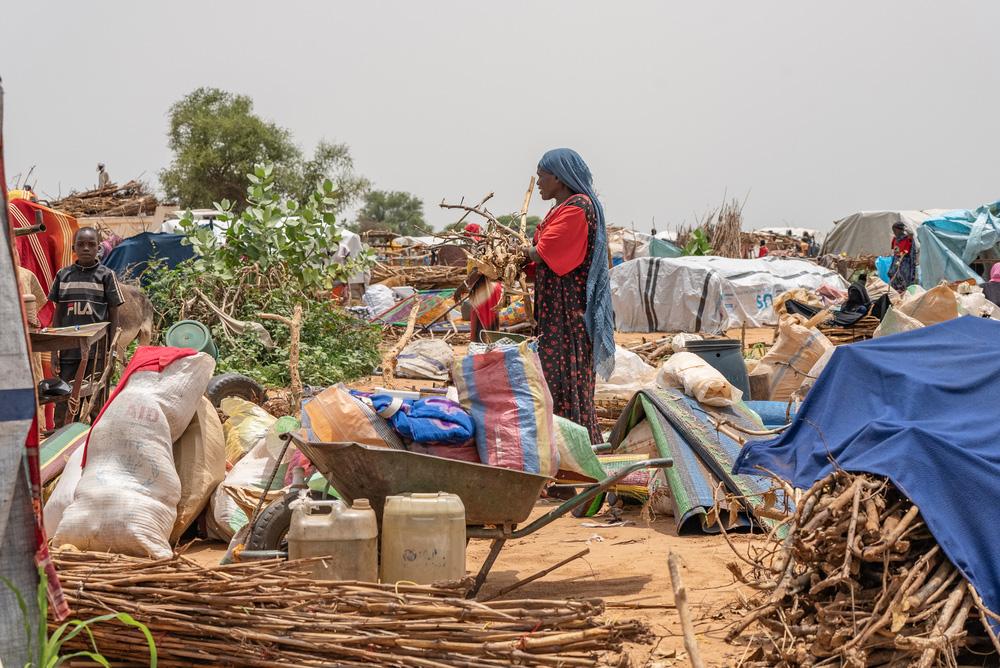
We are doing our best, but the needs are massive, and there is only so much we can do.Susana Borges, MSF Emergency Coordinator in Adre.
“It’s hard to describe what these people are going through. For some, it has been five weeks without food”, says Susana Borges, the outgoing MSF emergency coordinator in Adre. “People are feeding their children with insects, grass, and leaves! They have much less water and sanitation than they need, and many of them have no shelters whatsoever. How can they survive like this?”
“People are desperately waiting for food rations, but they don’t even have basic cooking supplies. How will they cook if they have no pots?" says Borges. “The most urgent health needs we are dealing with are malaria, diarrhea, and malnutrition. We are doing our best, but the needs are massive and there is only so much we can do."
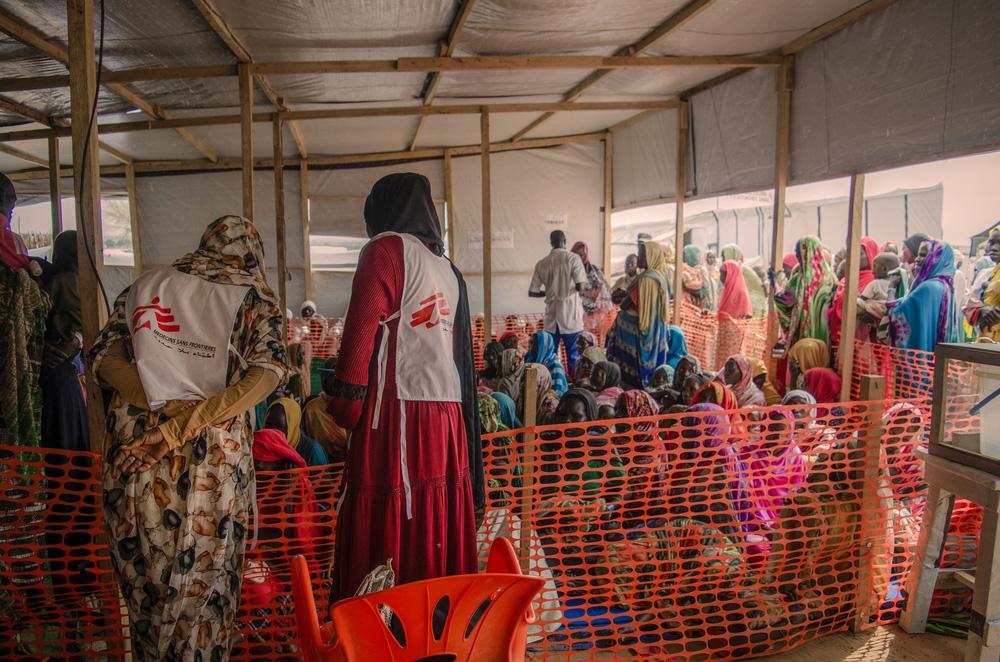
"We are deeply concerned about the population within Sudan and their access to healthcare, as well as the increased risks of epidemics resulting from the current situation," states Trish Newport, MSF's head of emergency response. " And we are also deeply concerned about the population that has fled Sudan into Chad. The situation in eastern Chad is a tremendous emergency, with the risk of further deterioration if there is not a swift and substantial scale up on humanitarian situation".
In the eastern Chadian province of Ouaddai, MSF teams deliver critical healthcare services in partnership with the Ministry of Health. The capacity has been expanded to 420 beds in Adre Hospital and four health centres. Additionally, a 38-bed clinic situated in Camp Ecole is conducting 460 consultations daily. The region is grappling with a high prevalence of malaria and diarrhoea, while 372 children are undergoing treatment for malnutrition in Camp Ecole.
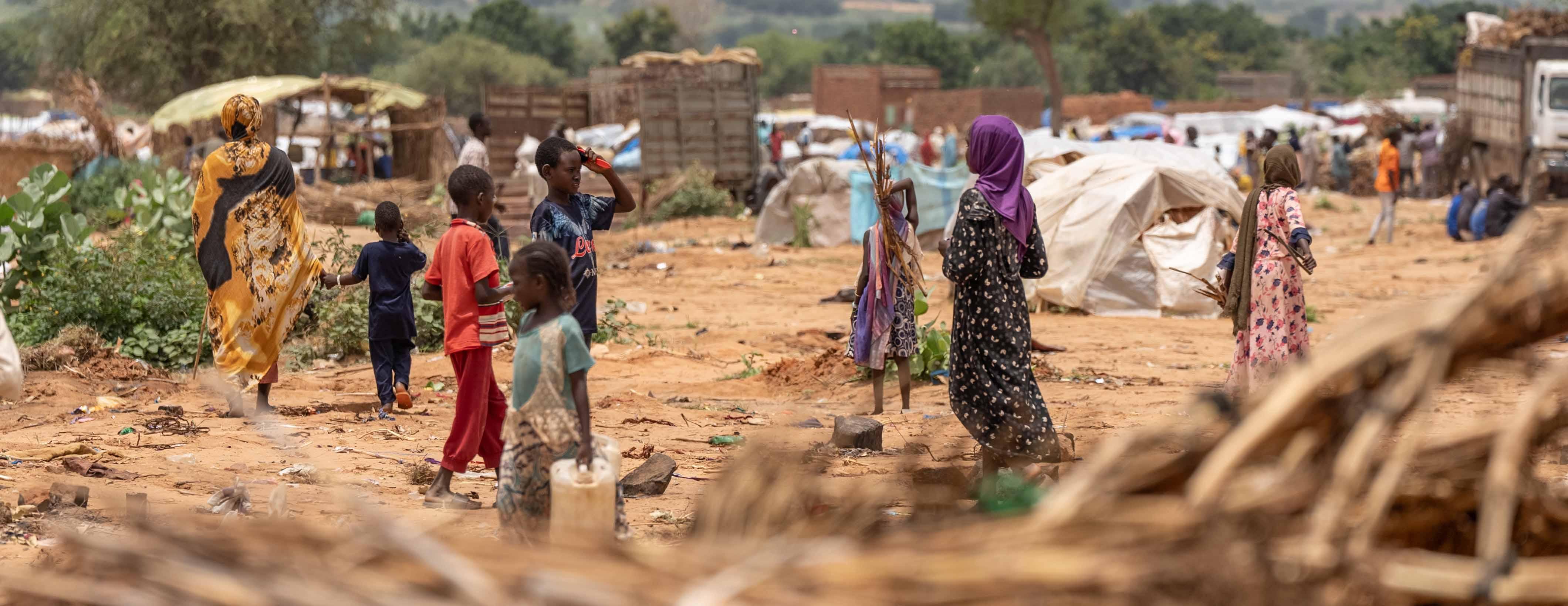
In Adre Hospital, 150 patients are currently being treated for traumatic injuries, mostly gunshot wounds sustained in Sudan, while 133 children are admitted for life-threatening medical complications linked to malaria and malnutrition. Our teams have also started to support and deliver maternal care and services for victims of sexual violence.
The MSF teams offering mental health assistance in Camp Ecole have witnessed distressing cases of Sudanese refugees enduring profound losses, rape, and sexual violence during their journey to Chad. Numerous women have recounted being confined to a room and subjected to rape by groups of men. Given the gravity of their trauma and suffering, these people need ongoing and comprehensive support. A resolute commitment from the UN, other organizations, and donors is key to ensuring these people are saved from potentially fatal circumstances.
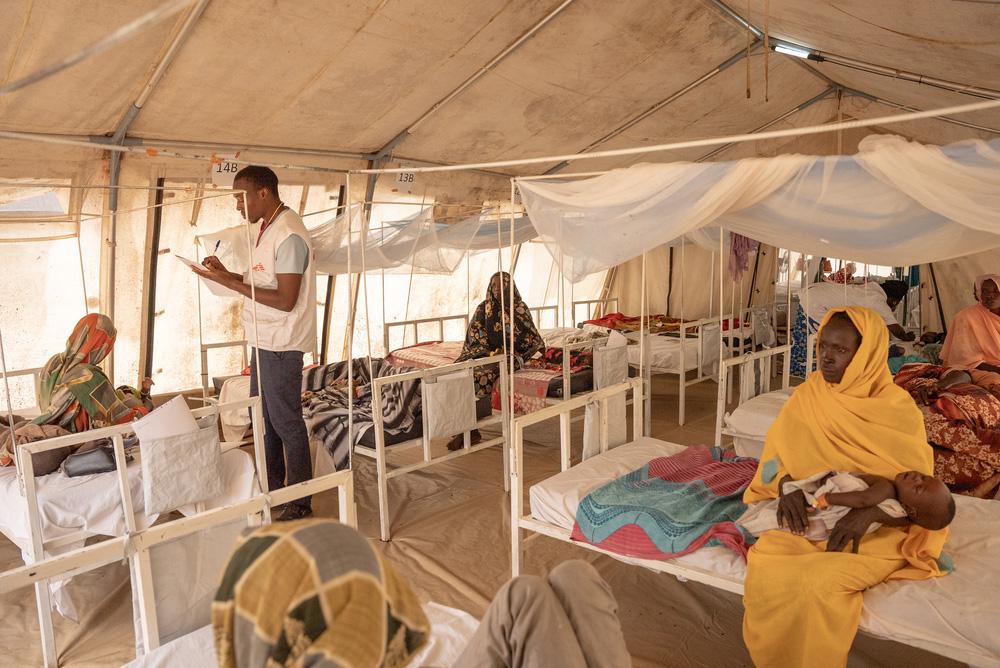
Testimonials
MSF teams on the ground have collected testimonials from affected people in both countries, painting a distressing and traumatic picture of their circumstances.
Testimonials from Chad
“I am not able to feed my family, my children are so hungry that they eat the grass and the weeds they can find around the camp.”
“We did not receive food since we got here two weeks ago. We are a family of 19, sometimes we can get one or two portions of food and we need to share it among all of us. All the food that we had from before is now finished and I don’t know what to do next. When I get to my shelter after this medical consultation, I don’t know what I will do.”
Testimonials from Sudan
“When my village was attacked, I fled into the forest, and I hid there for almost one week, without food or water. After one week we decided to go back to Mournay, but there we found our town full of dead bodies, houses burned. I even recognized the dead bodies of some of my friends and relatives.”
“From Al Geneina to the Chadian border, there was a checkpoint every kilometer. There were at least 10 checkpoints. Every time they took you out of the car, threatening you, stealing everything you have. They asked which tribe you belonged to. Anyone who answered they were Massalit were killed on the spot. There were so many dead bodies on the way. Arriving at the border, the last point, they had a list of all the influential Massalit people. If your name is on the list, they killed you right there.”
“In Sudan, they killed with no hesitation, even the children, I saw it with my own eyes. They raped women, even in groups. If they resisted, they killed them. If they entered a place with 20 men, they would kill all of them. I focus on God so he can help me.”
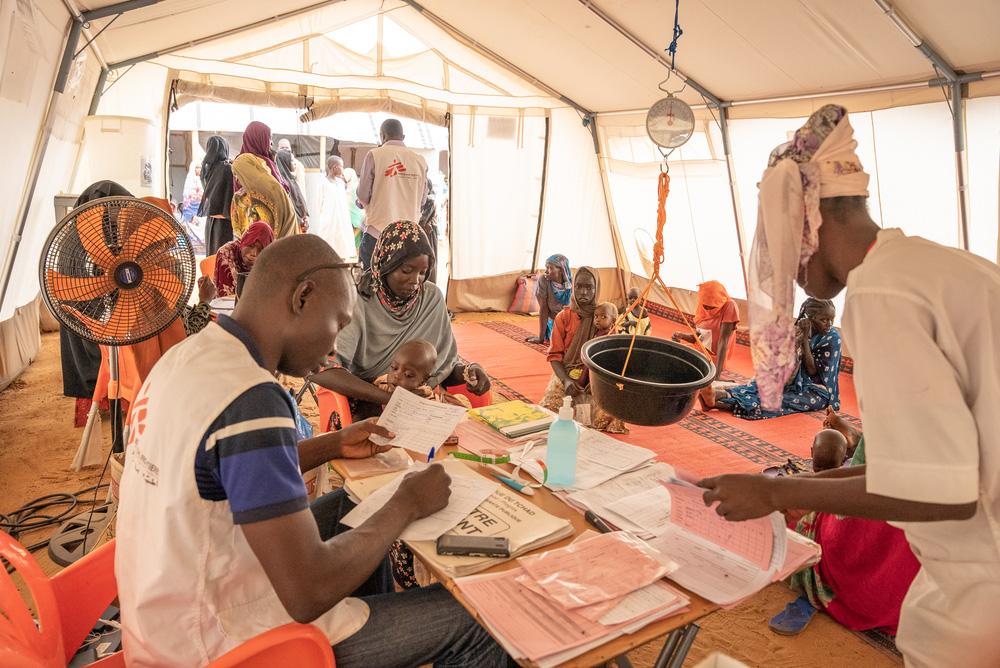
Facts and Figures
MSF teams provide a range of healthcare services, including trauma care for war wounded, maternal and paediatric care, and treatment for malnutrition in 10 states in Sudan, including Khartoum, Al-Jazeera, West Darfur, North Darfur, Central Darfur, South Darfur, Al-Gedaref, Blue Nile, White Nile and River Nile. Regular donations are made to the various health facilities to keep them running. Where possible, MSF is incentivising the Ministry of Health staff to continue their services as they have not received salaries.
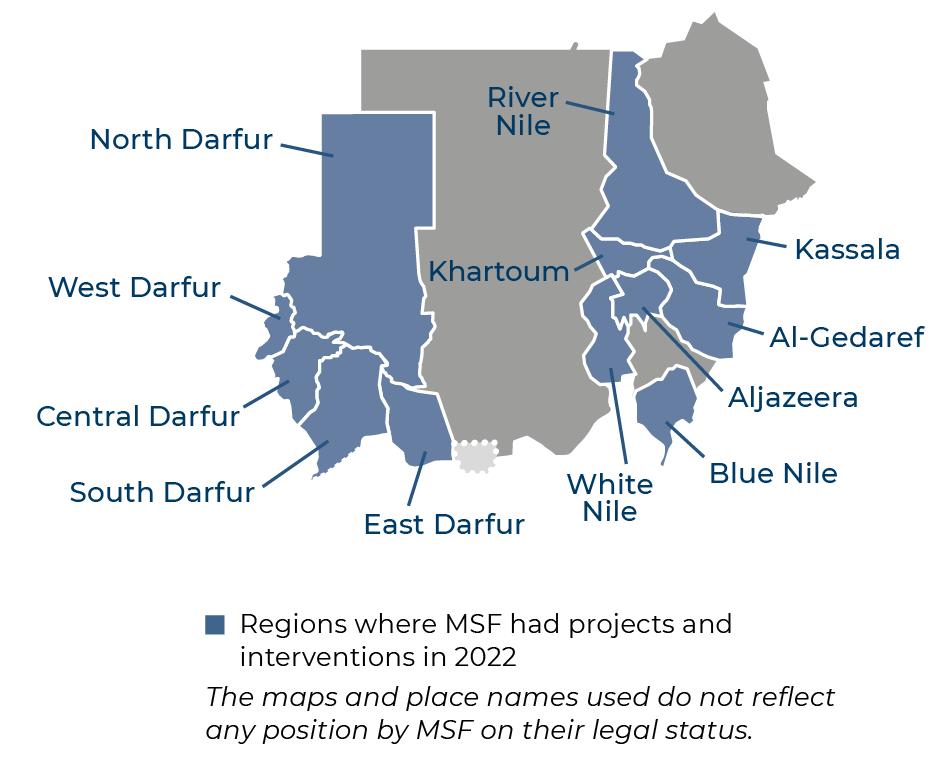
List of hospitals where MSF teams are working in Sudan
Khartoum State
-
Bashair Teaching Hospital
-
Turkish Hospital in Khartoum
-
Shaheed Wadaatallah Primary Healthcare clinic
-
Umbada Hospital
-
Al Nao Hospital in Omdurman
-
Al Saudi Maternity Hospital in Omdurman
-
Alban Al Jadeed Hospital
-
Umdawanban Hospital in Khartoum State (outside of Khartoum city)
Al-Jazeera State
-
Mobile clinic teams provide healthcare in seven locations for people who have fled the intense fighting in Khartoum.
-
Al-Kamlin Hospital
-
Women and ObsGyn Hospital in Wad Madani
-
Orthopedic Trauma Center in Wad Madani
White Nile State
-
Three primary healthcare centres and two treatment centres for measles
Blue Nile State
-
Nutrition ward in Ad-Damazine Teaching Hospital
River Nile State
-
MSF has donated hygiene materials and additional beds to Shendi University Hospital and implemented training for infection prevention and control.
Al-Gedaref State
-
In Taneidba camp, MSF has been running a hospital for refugees and host communities since 2021.
-
Outpatient consultations and maternity services in Um Rakuba refugee camp
West Darfur State
-
MSF is supporting El Geneina Hospital with essential medical donations
-
Efforts are ongoing to re-open the health facility in Kreinik and mobile clinics
North Darfur State
-
MSF supports the main referral hospital for trauma care, a paediatric hospital, and running a clinic in ZamZam camp.
Central Darfur State
-
MSF runs a hospital that offers the only secondary healthcare for more than 40,000 people.
-
Malnutrition treatment in Umo Primary Healthcare Centre
South Darfur State
-
Running a clinic in Jebel Marra and reopened a clinic in Kalokitting
